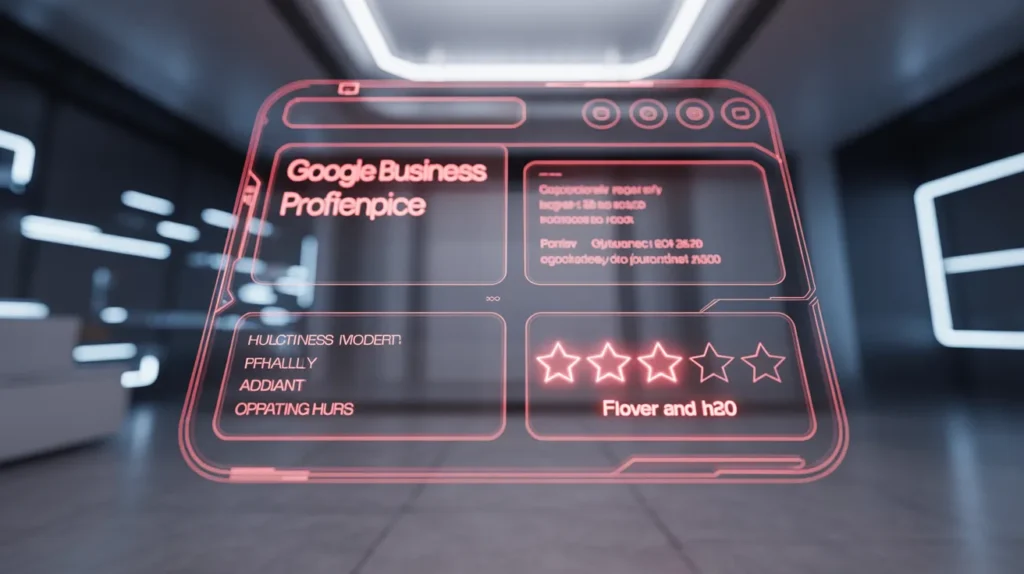In today’s digital landscape, being visible to customers in your immediate vicinity is paramount for businesses with a physical presence or those serving specific geographic areas. Local Search Engine Optimization (SEO) is the key to unlocking this visibility, focusing on optimizing your online presence to attract more business from relevant local searches. When someone nearby searches for “pizza place near me” or “best plumber in [Your City],” local SEO strategies ensure your business appears prominently in those search results, driving foot traffic and local online engagement.
What is Local SEO?
Local SEO is a specialized branch of search engine optimization that helps your business be more visible in local search results on Google and other search engines. Unlike general SEO, which aims for national or international visibility, local SEO targets potential customers within a specific geographic radius. This often involves searches with local intent, such as those including location-specific keywords (e.g., “coffee shop downtown”) or “near me” queries, which have skyrocketed in recent years. The goal is to connect your business with the people actively seeking your products or services in your area.
Why is Local SEO Crucial for Your Business?

The importance of local SEO cannot be overstated. Consider these points:
- High Purchase Intent: According to Google, a significant percentage of local searches lead to a purchase within 24 hours. Users searching locally often have a clear intention to find a product or service and make a transaction quickly.
- Increased Foot Traffic and Sales: For brick-and-mortar businesses, local SEO directly translates to more customers walking through your doors. For service-area businesses, it means more local leads and appointments.
- Mobile-First World: The majority of local searches happen on mobile devices. A strong local SEO presence ensures you’re visible to these on-the-go consumers.
- Cost-Effective Marketing: Compared to traditional advertising, local SEO can be a highly cost-effective way to reach your target audience.
- Builds Trust and Authority: Appearing in the top local search results, especially in Google’s Local Pack (the map and three business listings), builds credibility and trust with potential customers.
Key Pillars of Local SEO Success
Achieving success with local SEO involves a multi-faceted approach. Here are the core components:
1. Google Business Profile (GBP) Optimization
Your Google Business Profile (formerly Google My Business) is arguably the most critical element of local SEO. It’s your free business listing on Google that appears in Google Maps and the Local Pack in Google Search.
- Claim and Verify: Ensure you’ve claimed and verified your GBP listing.
- Complete and Accurate Information: Fill out every section of your profile with accurate and up-to-date information. This includes your business name, address, phone number (NAP), website, hours of operation, services, products, and attributes (e.g., “wheelchair accessible,” “free Wi-Fi”).
- Categories: Choose the most relevant primary and secondary categories for your business.
- Photos and Videos: Regularly upload high-quality photos of your business, products, services, and team.
- Google Posts: Utilize Google Posts to share updates, offers, events, and new products directly in your listing.
- Q&A Section: Proactively answer common questions in the Q&A section and monitor it for new customer queries.
“Your Google Business Profile is your digital storefront. Keep it polished, informative, and engaging.” – Moz

2. Local Keyword Research
Understand what terms your local customers are using to find businesses like yours.
- Location Modifiers: Think “service + city” (e.g., “electrician Anytown”) or “service + neighborhood.”
- “Near Me” Searches: Optimize for implicit local intent. Google understands user location for these queries.
- Long-Tail Keywords: Target more specific, longer phrases that indicate high intent (e.g., “emergency plumber available 24/7 in [Your City]”).
3. On-Page SEO Signals
Optimize your website content for local search.
- NAP Consistency: Ensure your Name, Address, and Phone number (NAP) are consistent across your website and all online directories.
- Local Keywords: Incorporate local keywords naturally into your website’s title tags, meta descriptions, header tags (H1, H2, etc.), and body content.
- Location Pages: If you have multiple locations, create unique, optimized pages for each one.
- Local Content: Create blog posts or articles about local events, news, or topics relevant to your community and business. For instance, if you’re a local bakery, you could write about “The Best Picnic Spots in [Your City]” and mention your offerings.
- Schema Markup: Implement local business schema markup on your website to provide search engines with detailed information about your business in a structured format.
4. Local Link Building & Citations
Citations are online mentions of your business’s NAP information on other websites, such as online directories (Yelp, Yellow Pages, Foursquare), industry-specific sites, and local chamber of commerce sites.
- Consistency is Key: Ensure your NAP information is identical across all citations. Inconsistencies can confuse search engines and harm your rankings.
- Quality over Quantity: Focus on getting listed in reputable, relevant directories.
- Local Link Building: Earn links from other local businesses, community websites, local news outlets, and event listings. Sponsoring a local event or partnering with a complementary local business can be great ways to earn these valuable local links.
5. Online Reviews and Reputation Management
Online reviews are a significant ranking factor and heavily influence customer decisions.
- Encourage Reviews: Make it easy for satisfied customers to leave reviews on Google, Yelp, and other relevant platforms.
- Respond to All Reviews: Thank customers for positive reviews and address negative reviews professionally and constructively. This shows you value customer feedback.
- Monitor Your Reputation: Regularly check review sites and social media for mentions of your business.
6. Mobile-Friendliness and Page Speed
A seamless mobile experience is crucial for local SEO, as many local searches are performed on smartphones.
- Responsive Design: Ensure your website is mobile-friendly and adapts to all screen sizes.
- Page Speed: A fast-loading website improves user experience and is a ranking factor. Slow sites can lead to high bounce rates, especially for users on the go.
Leveraging Neo Core Tools for Local SEO

While not direct local SEO tools, several offerings from TheNeoCore.com can significantly support your local SEO efforts by enhancing your website’s performance and user experience:
- Image Compressor: Large image files are a primary cause of slow loading times. Using the Image Compressor can drastically reduce image file sizes without sacrificing quality. This leads to faster page loads, which is crucial for retaining mobile users searching locally and is a positive signal for Google.
- HTML, CSS, JS Minifier/Beautifier: Clean, minified code also contributes to faster website loading speeds. The HTML, CSS, JS Minifier/Beautifier can help streamline your website’s code, improving performance and, consequently, your SEO.
- QR Code Generator: QR codes can be a fantastic bridge between your offline and online local marketing efforts. Use QR Code Generator to create codes for:
- Linking directly to your Google Business Profile review page.
- Directing users to a special offer page on your website.
- Providing easy access to your Wi-Fi network in-store.
- Linking to your location on Google Maps from print materials.
By ensuring your website is fast, efficient, and offers innovative ways to connect (like QR codes), you’re creating a better experience for local users, which indirectly boosts your local SEO.
Perhaps you’re also looking to improve your site’s overall technical health? You might find our article on How to Fix “Crawled – Currently Not Indexed” Status in Google Search Console helpful in conjunction with these efforts.
Measuring Your Local SEO Success

How do you know if your local SEO efforts are paying off? Track these key metrics:
| Metric | Tool/Method | Why It’s Important for Local SEO |
|---|---|---|
| Local Pack Rankings | Manual searches (incognito), rank tracking tools | Shows visibility for key local terms. |
| Organic Traffic (Local) | Google Analytics (segment by geographic area) | Measures website visitors from your target locale. |
| GBP Insights | Your Google Business Profile dashboard | Tracks how users find your listing, actions taken. |
| Click-Through Rate (CTR) | Google Search Console, GBP Insights | Indicates how compelling your listing/snippet is. |
| Conversions | Google Analytics (Goal tracking), Call tracking | Measures phone calls, form submissions, direction requests. |
| Citation Consistency | Manual checks, citation audit tools | Ensures NAP accuracy across the web. |
| Review Quantity & Rating | GBP, Yelp, etc. | Reflects customer satisfaction and trust. |
The Future of Local SEO
Local SEO is constantly evolving. Trends to watch include:
- Voice Search Optimization: More people are using voice assistants to find local businesses. Optimize for conversational, long-tail keywords.
- AI and Machine Learning: Search engines are getting smarter at understanding local intent and context.
- Hyper-Local Targeting: Focus on even more specific neighborhoods or service areas.
- Increased Emphasis on E-A-T: Expertise, Authoritativeness, and Trustworthiness will continue to be vital, even at the local level.
Conclusion: Get Started with Local SEO Today
Local SEO is not a one-time task but an ongoing process. By focusing on optimizing your Google Business Profile, building local citations, managing your online reputation, and ensuring your website offers a fantastic user experience (with help from tools like those at TheNeoCore.com), you can significantly increase your visibility to nearby customers. Start implementing these strategies today, and watch your local business grow!

